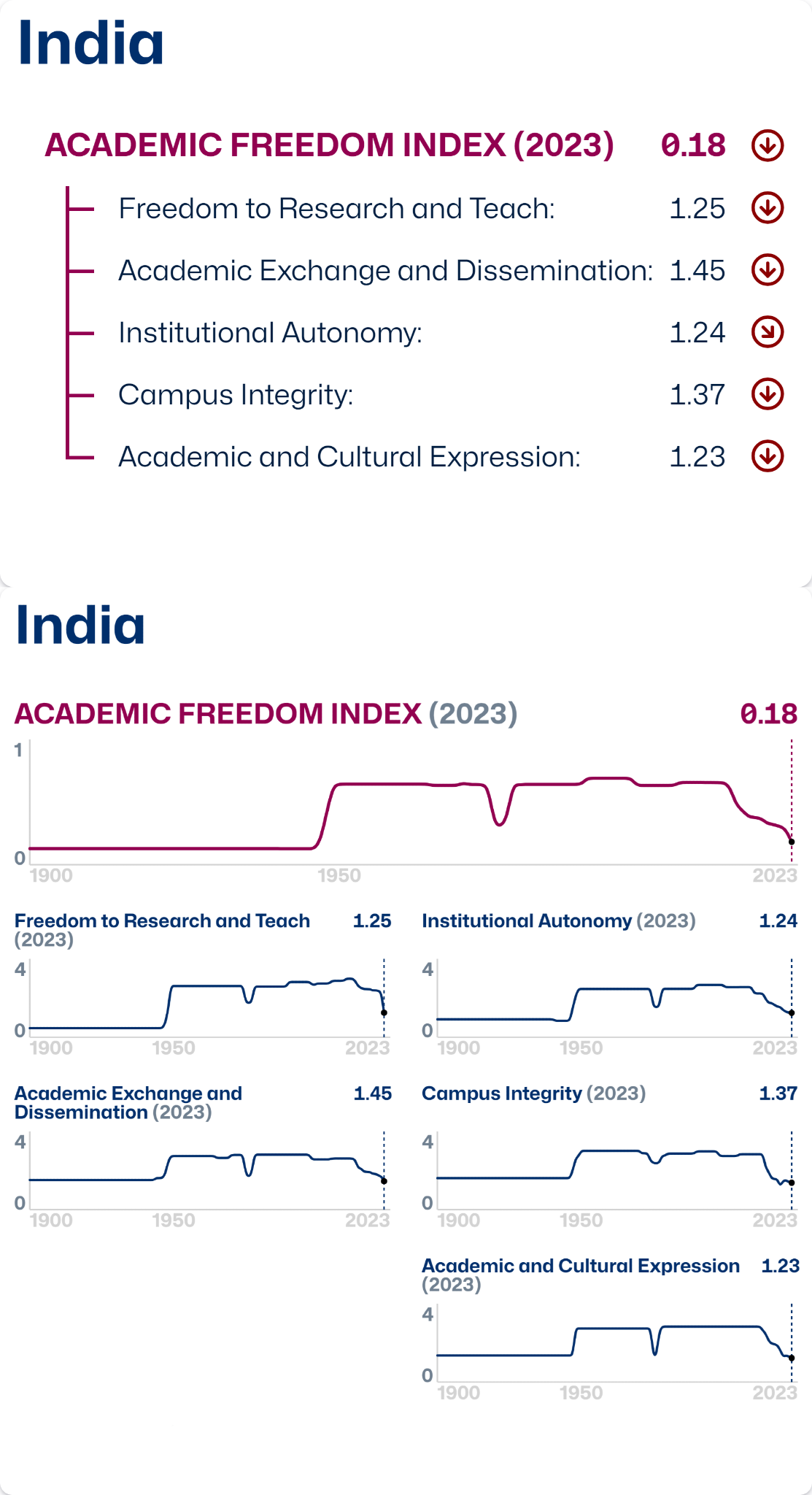Important Facts For Prelims
Declining Academic Freedom in India
- 08 Oct 2024
- 4 min read
Why in News?
The "Free to Think 2024" annual report by the Scholars at Risk (SAR) Academic Freedom Monitoring Project reveals a concerning decline in academic freedom in India over the past decade.
- Academic freedom refers to the right to pursue knowledge and conduct research without interference, supporting the open exchange of ideas and protecting academic integrity.
Note:
SAR is a network of 665 universities across the globe, it investigates and reports attacks on higher education with the aim of raising awareness, generating advocacy, and increasing protection for scholars, students, and academic communities.
What are the Key Highlights of the Report?
- Significant Decline in Academic Freedom: The report stated that India's academic freedom index score dropped from 0.6 to 0.2 points between 2013 and 2023.
- The report stated that, according to the Academic Freedom Index (AFI), India now ranks as "completely restricted," marking its lowest score since the mid-1940s.
- Main Threats to Academic Freedom in India:
- Political Control: The report cites the heightened efforts to exert political control and impose a majoritarian religion agenda in universities.
- Restrictions on Protests: New policies at universities like Jawaharlal Nehru University (JNU) and South Asian University (SAU) have prohibited student protests, undermining student expression and activism.
- Restrictions are also placed on academic freedom, limiting independent thought and expression.
- Central vs. State Government Conflicts: Ongoing battles between the Union government and various State governments over control of higher education are evident, particularly in states like Kerala, Tamil Nadu, West Bengal, and Punjab.
- Such conflicts result in restrictive policies that can limit independent institutional autonomy and restrict academic freedom.
- Intimidation of Scholars: Instances of intimidation have led to resignations or retractions of critical academic work, undermining academic integrity and fostering self-censorship among researchers in higher education.
- Global Context: The report documents 391 attacks on higher education communities in 51 countries, highlighting a broader global issue of threats to academic freedom.
Academic Freedom Index
- The AFI assesses de facto levels of academic freedom across the world based on five indicators.The AFI currently covers 179 countries(including India) and territories, and provides the most comprehensive dataset on the subject of academic freedom.
- Five Indicators: freedom to research and teach; freedom of academic exchange and dissemination; institutional autonomy; campus integrity; and freedom of academic and cultural expression.
- The AFI project started in 2017 with an expert consultation in Cologne, funded by the Fritz Thyssen Foundation, and the first version was released in 2020.
- AFI uses a scale from 0 (low) to 1 (high) to measure the degree of academic freedom in a country.
UPSC Civil Services Examination, Previous Year Question (PYQ)
Prelims
Q. Which of the following provisions of the Constitution does India have a bearing on Education? (2012)
- Directive Principles of State Policy
- Rural and Urban Local Bodies
- Fifth Schedule
- Sixth Schedule
- Seventh Schedule
Select the correct answer using the codes given below:
(a) 1 and 2 only
(b) 3, 4 and 5 only
(c) 1, 2 and 5 only
(d) 1, 2, 3, 4 and 5
Ans- (d)





